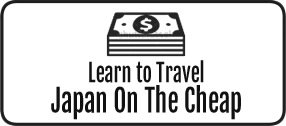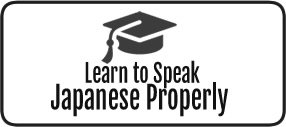Transportation in Tokyo
Japan has truly mastered the concept and practice of mass public transportation, so much so that individuals do not even need to own cars per se, unless they live far in the country side, for those who live in a sub-urban area are inevitably connected to a rail line which then connects them to any decent sized in the whole country.
It just depends how many transfers you’re willing to take and how much money you have.
To help illustrate this point, Japan has over 9,250 rail way stations throughout the country. Needless to say no matter where you are, you are connected and can go anywhere.
Aside from rail, Japan has your standard Taxi and Bus transportation for occasions that demand it.
Taxi
Outside of every train station you’ll find a bus loop and a taxi pickup area. First thing you will note is that all taxis in Japan are black and look like a 1984 Renault Sedan.
Drivers typically don’t speak any English so make sure you have your directions written in Japanese on paper.
The fees for taxis are rather expensive, for a trip 1.5 miles expect to pay around $18 USD. That same distance would cover three train stations, and would cost maybe $3 for a ticket, so you can see the drastic price change.
And of course that same distance by bus would be less than $2.
Subway
The subway in Japan is terribly efficient and convenient, boasting 9 cities with subway systems:
Fukuoka City Subway
Kobe Municipal Subway
Kyoto Municipal Subway
Osaka Municipal Subway
Nagoya Subway
Sapporo Subway
Sendai Subway
Yokohama Subway
Tokyo Subway
Although very convenient the subway does boast the highest prices for ticket fare. Expect to pay a minimum of 200 yen and as much as 350 yen for a station that is furthest from you. (one way)
Subway systems are independent from the above ground rail companies such as JR, however if you have the right kind of pass you can use both with that same pass, otherwise you’ll have to get a new ticket if you want to transfer.
Subways in Tokyo are split into two groups:
Toei Subway:
Mita Line
Shinjuku Line
Oedo Line
Asakusa Line
Tokyo Metro:
Ginza Line
Marunochi Line
Hibiya Line
Tozai Line
Chiyoda Line
Yurakucho Line
Hanzomon Line
Namboku Line
Fukutohshin Line
Bus
Bus is the most affordable method of transportation in Japan, whether inner city or when venturing out and traveling to other cities (highway bus).
In Tokyo one of the main buses is the Toei Bus, which works in partnership with the Toei subway. The typical fee on the bus is 200 yen. However, passes exist to make this even more affordable.
Some buses may have an English speaking driver or assistant, but typically do not, and there is not much information in English so the traveler may have difficult go of it.
For inner city travel the bus proves to be economical, but really shines for traveling between cities. For example a midnight bus trip from Tokyo to Osaka can cost as low as $40 US one way, whereas the shinkansen (bullet train) will cost around $180 US.
Trains
There are many major railways in Japan, but by far the largest and most ubiquitous is JR.
JR serves Tokyo and the Greater Tokyo Area with superb coverage, From Narita to Yokohama and Saitama you are well connected, and of course it doesn’t stop there, as Tokyo is the terminal station for all JR lines you can go anywhere in Japan from Tokyo.
Fees on JR are much more affordable than those of subways, for instance 130 yen for one ticket is the starting price.
In Tokyo you’ll be using mostly the JR Yamanote line which’s designated color is lime green, and which goes in a circle around the Tokyo metropolitan area, so literally you can stay on one train and ride the whole circle back to where you started.
It should be noted that when you purchase a JR ticket that it is good for ANY JR line, you don’t just have to use it on the Yamanote line. You could use it for the Shonan-Shinjuku line which goes from Shinjuku to Yokohama, or the Chuo Rapid Line which goes from Shinjuku, cuts across the Yamanote circle and goes straight to Tokyo Station.
There are several JR lines which service the Tokyo Metropolitan Area:
Yamanote Line
Circle line that connects all major city centers.Keihin-Tohoku Line
Runs parallel to the Yamanote Line on the eastern half of the circle.Chuo/Sobu Line
Runs across the Yamanote circle (local slow service).Chuo Line (Rapid)
Runs across the Yamanote circle (rapid service). Connects Tokyo and Shinjuku.Saikyo/Rinkai Line
Rapid service parallel to the Yamanote Line on the western half of the circle. Connects to Odaiba.Shonan-shinjuku Line
Coming from the north at Omiya, down into Ikebukuro, Shinjuku, Shibuya, Eibsu and Osaki, then to Yokohama and further.
As stated above you’ll chiefly be using the Yamanote line, which at the most will cost you 190
Passes
Toei Bus Pass & Train Pass
The flat rate for a bus ticket is 200 yen, however in Tokyo the Toei Bus/Subway system as a special pass for: 500 yen an adult can ride the bus as much as he wants for one day, and for 700 yen (Toei One Day Economy Pass) unlimited bus and unlimited Toei Subway and Toei Trains (The Toei Metro has 4 lines in Tokyo and does not include the other 9 lines of the Metro) (Toei trains include the Arakawa Street Car and the Nippori-Toneri Liner, which is one line that runs from Nippori up to Minumadai-shinsuikoen.
These tickets are sold on the bus themselves and at the Toei Train stations.
In order to make this clearer here are a list of Toei subway stations that you can use in conjunction with the Toei buses:
Toei Subway:
Mita Line
Shinjuku Line
Oedo Line
Asakusa Line
More information:
http://www.kotsu.metro.tokyo.jp/eng/tickets/value.html
Other Passes:
Tokyo One Day Free Ticket
(1580 yen) Unlimited use of all subway lines (Toei and Tokyo Metro) and JR trains in the central Tokyo area on one calendar day. It is also valid on buses and streetcars operated by Toei. The pass is overpriced and will unlikely provide any savings over regular tickets or prepaid cards. ![]()
Toei and Tokyo Metro One-Day Economy Pass (1000 yen) Unlimited use of all subway lines (Toei and Tokyo Metro) on one calendar day. The pass only pays off if you use the subways excessively. The pass is not valid on JR trains. ![]()
Tokyo Metro Open Ticket (1-day: 600 or 710 yen; 2-day: 980 yen) Unlimited use of the nine Tokyo Metro subway lines, but not the four Toei subway lines and JR trains. A regular one day pass costs 710 yen, while a tourist version is available for 600 yen (one day) and 980 yen (two consecutive days). The tourist version is only available at Narita Airport. ![]()
Toei One-Day Economy Pass (700 yen) Unlimited use of the four Toei subway lines, buses and streetcars on one calendar day. It is not valid on the nine Tokyo Metro subway lines and JR trains. ![]()
Tokunai Pass (730 yen) Unlimited use of JR trains in the central Tokyo area on one calendar day.
More Information:
http://www.kotsu.metro.tokyo.jp/eng/tickets/value.html
Related Pages





